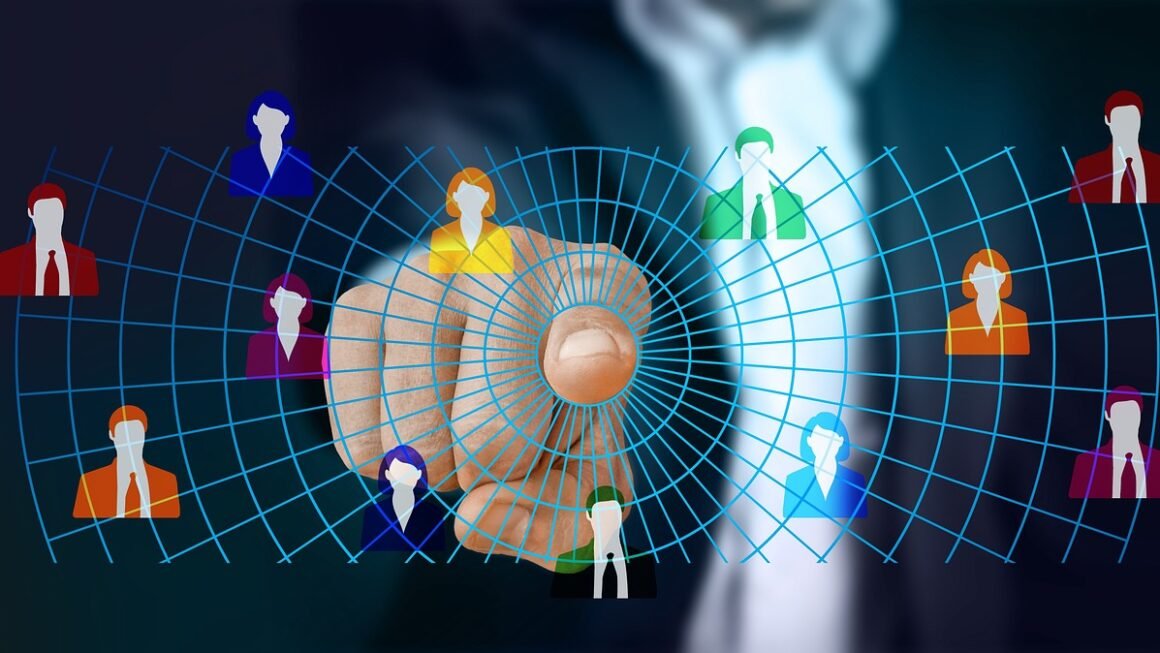AI-enabled devices are rapidly transforming our lives, from the smartphones in our pockets to the smart homes we live in. These devices, powered by artificial intelligence, are becoming increasingly sophisticated, capable of learning, adapting, and performing tasks that were once considered the exclusive domain of humans. This blog post will delve into the world of AI-enabled devices, exploring their functionalities, benefits, and impact on various aspects of our daily routines.
Understanding AI-Enabled Devices
What are AI-Enabled Devices?
AI-enabled devices are electronic devices equipped with artificial intelligence capabilities. These capabilities allow the devices to:
- Learn: Analyze data and improve their performance over time.
- Adapt: Adjust to changing conditions and user preferences.
- Automate: Perform tasks with minimal human intervention.
- Reason: Draw conclusions and make decisions based on available information.
These devices leverage machine learning algorithms, natural language processing (NLP), and computer vision to understand and interact with the world around them.
Key Components of AI-Enabled Devices
- Sensors: Gather data from the environment (e.g., cameras, microphones, temperature sensors).
- Processors: Analyze the data and execute AI algorithms.
- Memory: Store data and learning models.
- Software: Implement the AI algorithms and provide user interfaces.
- Connectivity: Enable communication with other devices and the internet.
Examples of AI-enabled devices include smartphones, smart speakers, smart thermostats, autonomous vehicles, and even sophisticated medical equipment.
Applications of AI-Enabled Devices
Smart Homes
AI-enabled devices are revolutionizing the way we live in our homes:
- Smart Thermostats: Learn your heating and cooling preferences and adjust the temperature automatically, saving energy and money. Example: Nest Learning Thermostat.
- Smart Lighting: Control your lights remotely, set schedules, and even adjust the color and brightness based on your mood. Example: Philips Hue.
- Smart Security Systems: Monitor your home for intruders, alert you to potential dangers, and even contact emergency services. Example: Ring Alarm.
- Voice Assistants: Control your smart home devices with voice commands, play music, set reminders, and get information. Example: Amazon Echo (Alexa), Google Home (Google Assistant).
Healthcare
AI-enabled devices are improving healthcare outcomes in various ways:
- Wearable Health Trackers: Monitor vital signs such as heart rate, sleep patterns, and activity levels, providing valuable insights into your health. Example: Apple Watch, Fitbit.
- Diagnostic Tools: Analyze medical images and identify diseases with greater accuracy and speed.
- Robotic Surgery: Assist surgeons with complex procedures, improving precision and reducing recovery times.
- Personalized Medicine: Tailor treatments to individual patients based on their genetic makeup and medical history.
Automotive Industry
AI is driving innovation in the automotive industry:
- Autonomous Vehicles: Self-driving cars are becoming a reality, promising to improve safety, reduce traffic congestion, and provide mobility to those who cannot drive.
- Advanced Driver-Assistance Systems (ADAS): Features such as adaptive cruise control, lane departure warning, and automatic emergency braking are making driving safer and more convenient.
- Predictive Maintenance: AI algorithms can analyze vehicle data to predict when maintenance is needed, preventing breakdowns and extending the life of the vehicle.
According to a report by Statista, the global autonomous vehicle market is projected to reach $61.77 billion in 2024.
Business and Industry
AI-enabled devices are transforming business operations:
- Robotic Process Automation (RPA): Automate repetitive tasks, freeing up employees to focus on more strategic work.
- Chatbots: Provide customer support 24/7, answering questions and resolving issues.
- Predictive Analytics: Analyze data to forecast trends, optimize pricing, and improve decision-making.
- Supply Chain Optimization: Improve efficiency and reduce costs by optimizing inventory management, logistics, and transportation.
Benefits of AI-Enabled Devices
Increased Efficiency and Productivity
- Automate repetitive tasks, freeing up human workers to focus on more complex and creative work.
- Improve decision-making by providing insights and recommendations based on data analysis.
- Optimize processes and workflows, leading to increased efficiency and productivity.
Enhanced User Experience
- Personalize experiences based on individual preferences and needs.
- Provide seamless and intuitive interfaces for interacting with technology.
- Anticipate user needs and provide proactive assistance.
Improved Safety and Security
- Monitor environments for potential hazards and alert users to dangers.
- Detect and prevent cyberattacks, protecting sensitive data.
- Improve safety in transportation and other industries by automating tasks and reducing human error.
Cost Savings
- Reduce energy consumption by optimizing heating, cooling, and lighting.
- Lower maintenance costs by predicting equipment failures and scheduling preventative maintenance.
- Improve efficiency and reduce waste in manufacturing and other industries.
Challenges and Considerations
Data Privacy and Security
- AI-enabled devices collect vast amounts of data, raising concerns about privacy and security.
- It is important to ensure that data is collected and used ethically and responsibly.
- Robust security measures are needed to protect data from unauthorized access and misuse.
Bias and Fairness
- AI algorithms can be biased if they are trained on biased data.
- It is important to ensure that AI systems are fair and do not discriminate against certain groups of people.
- Regular audits and testing are needed to identify and mitigate bias.
Job Displacement
- AI-enabled devices can automate tasks that were previously performed by humans, leading to job displacement.
- It is important to invest in education and training programs to help workers adapt to the changing job market.
- Consider strategies for creating new jobs in AI-related fields.
Ethical Considerations
- As AI becomes more powerful, it is important to consider the ethical implications of its use.
- Develop guidelines and regulations to ensure that AI is used in a responsible and ethical manner.
- Engage in public discussions about the ethical implications of AI.
Conclusion
AI-enabled devices are poised to transform our world in profound ways. From smart homes and healthcare to transportation and business, AI is already making a significant impact. While there are challenges to overcome, the potential benefits of AI are enormous. By understanding the capabilities, benefits, and limitations of AI-enabled devices, we can harness their power to create a better future for all. Staying informed about the latest developments and engaging in thoughtful discussions about the ethical implications of AI will be crucial as we navigate this technological revolution.



